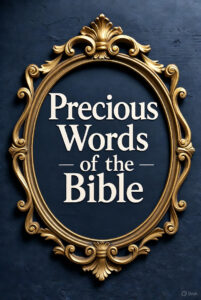“On th is day shall atonement be made for you, to cleanse you. Then, before the LORD, you will be clean from all of your sins.” Leviticus 16:30
is day shall atonement be made for you, to cleanse you. Then, before the LORD, you will be clean from all of your sins.” Leviticus 16:30
In fall each year people of the Jewish faith celebrate a holiday called Yom Kippur, or the Day of Atonement. These celebrations began when the Israelites wandered in the desert.
On the Old Testament Day of Atonement, the High Priest entered the tabernacle’s Most Holy Place to make a sacrifice for himself and for the people. Then he took two goats. One was sacrificed for the sins of the people, and the other, the scapegoat, was released into the wilderness. That showed that the people’s sins were removed far away, never to be seen again. “He is to lay both hands on the head of the live goat and confess over it all the wickedness and rebellion of the Israelites—all their sins—and put them on the goat’s head. He shall send the goat away into the wilderness” (Leviticus 16:21). And Psalm 103:12 says, “As far as the east is from the west, so far has he removed our transgressions from us.” Our sins have been removed forever by the sacrifice of Jesus.
The idea behind the word atonement is extremely important. It is easy to define the word by splitting it apart to say at-one-ment. There was a time in our lives when we were at odds with God. He was holy, and we were not. Our only hope was Jesus. He became the scapegoat who traded our un-holiness for his holiness. He took our sins, and we took his sin-lessness. Because of Jesus, we have been made at-one with God.
From the book “Precious Words of the Bible” by Reynold R. Kremer
